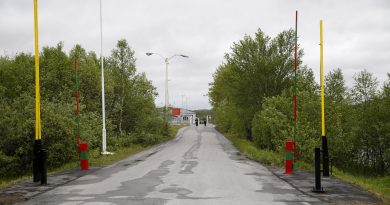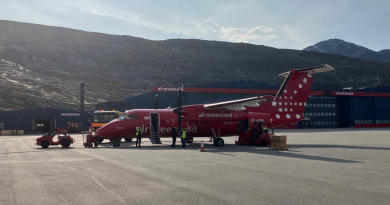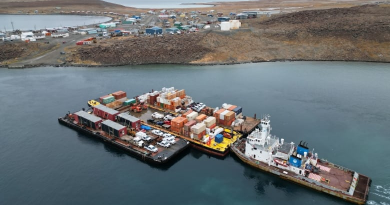Seeds saved from war and natural disaster head to Arctic vault for safekeeping
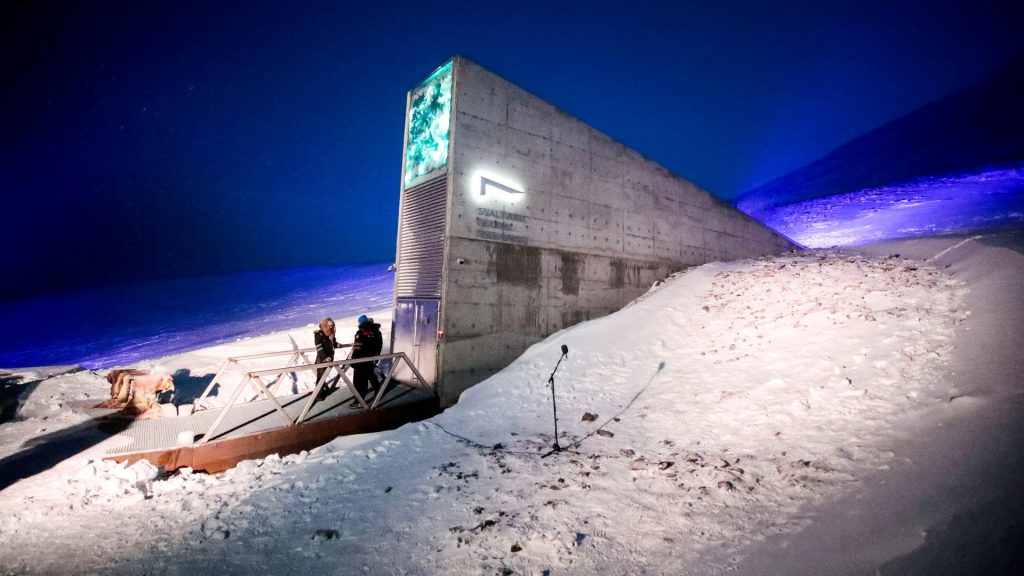
seed vault in Longyearbyen, Norway. (Lise Aserud/NTB Scanpix/Reuters)
Fourteen thousand seeds from 21 countries are heading to the Arctic this week, bound for the Svalbard Global Seed Vault—a permafrost-protected backup for the world’s food supply.
Among the seeds making their way north for this week’s deposit are those from nations already grappling with the environmental impacts of war and natural disasters.
“The seeds deposited this week represent not just biodiversity, but also the knowledge, culture and resilience of the communities that steward them,” Stefan Schmitz, executive director of the Crop Trust, said in a statement.
“We must find a way to protect this crop diversity for generations to come.”
Protected by rock and frozen ground
The Svalbard Global Seed Vault, opened in 2008, stores millions of seeds from around the world and serves as a backup for globe’s crops.
It was build underground in arctic Norway to make sure the seeds would stay frozen even without power, and that they would be protected in case of crises like crop failures or climate catastrophes.
- Temperature in vault: -18 C
- Samples in vault: 1,301,397
- Capacity: 4.5 million varieties of crops
This week’s deposits will include 15 species from Sudan.
The country’s national genebank in the city Wad Medani housed 17,000 of the country’s seeds but the freezers were looted by militants during the country’s ongoing civil war.
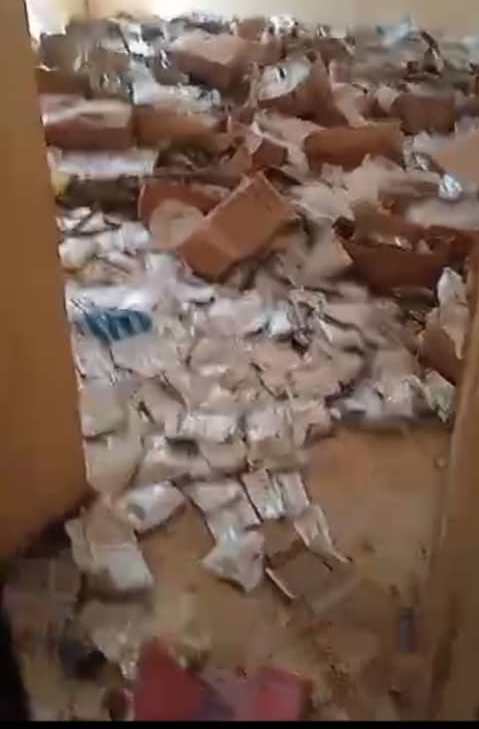
The Emergency Reserve for Genebanks, a fund that supports crisis-stricken gene banks, enabled some of the rescued seeds to be sent to NordGen, the Nordic gene bank.
There, they were sorted and prepared for deposit into the Seed Vault this week.
“In Sudan, where conflict has displaced more than eight million people and disrupted agriculture, these seeds represent hope,” Ali Babikar, the director of Sudan’s Agricultural Plant Genetic Resources Conservation and Research Centre (APGRC), said.
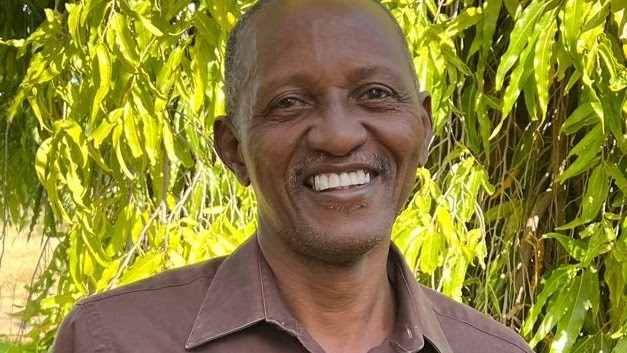
Typhoons, Fires, and Floods: The Philippines prepares important seeds for Arctic safeguarding
In addition to Sudan, the Philippines is another of several countries also making a deposit this week.
The country, frequently hit by powerful typhoons, has seen its national genebank flooded in the past, wiping out valuable seed collections.
And in 2012, a devastating fire tore through the national genebank, wiping out 60 per cent of the country’s crop collections—many of which had no backups anywhere else in the world.
Despite this, the country remains one of only 18 nations the world that are labelled “mega-biodiverse” hotspot, meaning it hosts an exceptionally high number of plant and animal species.
The country will be adding some of its rice and bean varieties to the Seed Vault this week.
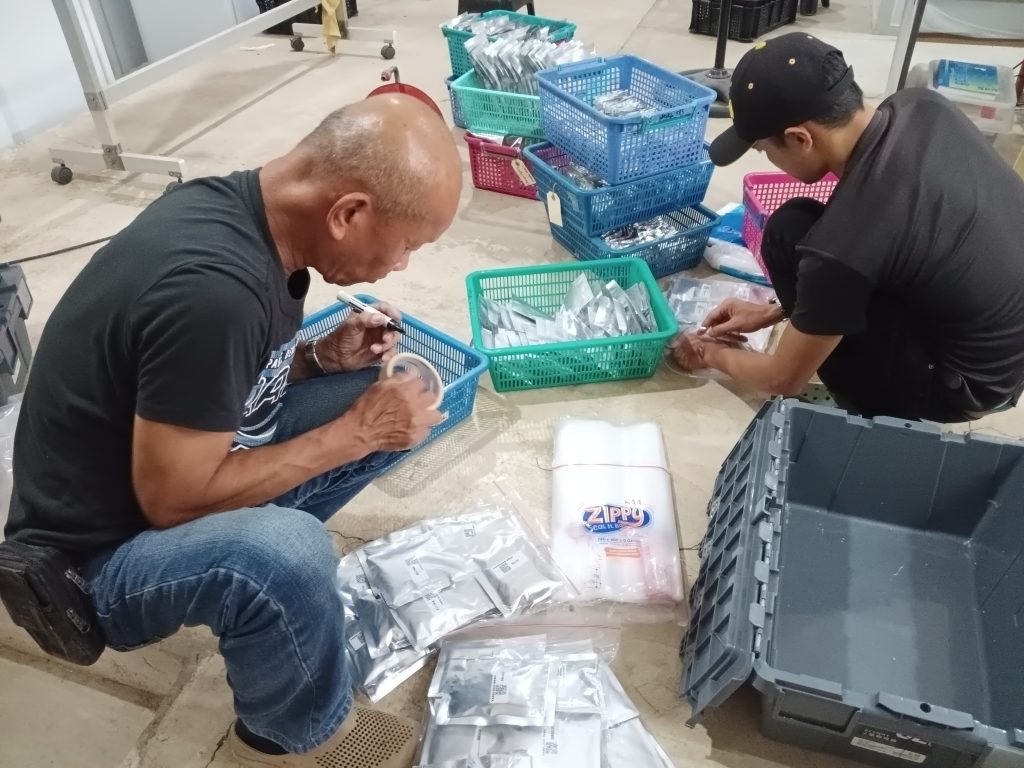
“The rapid loss of genetic diversity in the field and loss of diversity in our diets make conservation and accessibility more important than ever,” said Hidelisa De Chavez of the University of the Philippines.
Crop diversity “is the backbone of agriculture around the world,” he said.
- Malawi: Velvet beans, a crop that helps farmers improve soil health and even has medicinal uses
- Brazil: Over 3,000 varieties of rice, beans, and maize, essential for farming
Norwegian State Secretary Hanne-Berit Brekken said that the Svalbard Global Seed Vault continues to plan an important role in ensuring the planet’s future food supply.
“The Seed Vault is about our world’s food security,” Brekken said.
“It is fantastic to be here to receive new seeds to the Svalbard Global Seed Vault, also from several new depositors and countries, I am glad that Norway — through its support of this facility — helps to ensure that generations to come can make use of our plant heritage.”
Comments, tips or story ideas? Contact Eilís at eilis.quinn(at)cbc.ca
Related stories from around the North:
Canada: Biosecurity an increasing concern in Arctic, Antarctic regions, experts warn, Eye on the Arctic
Finland: Finland’s farming sector in crisis: report, Yle News
Norway: Alarm bells ringing for Atlantic salmon in northern Norway, The Independent Barents Observer
Sweden: Exercise to strengthen Nordic cooperation on food preparedness, Radio Sweden

